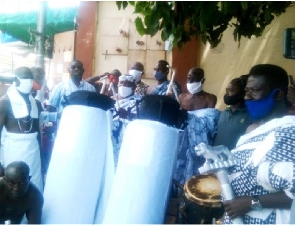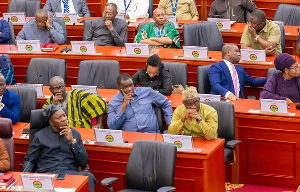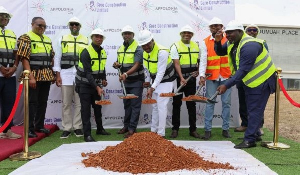The 2023 Homowo season is with us and the Greater Accra Administration as the political and administrative authority in the Region has duly requested the general public to adhere to the directives put in place in the interest of "peace harmony and national security."
In this regard, churches have been asked to limit their activities to their premises and refrain from using musical instruments for a month.
Together with mosques, pubs and street-side preachers, churches are not to create noise in the public domain through the use of loudspeakers.
Funerals and related activities which would engender public noisemaking are not allowed.
Ordinarily, the author has no qualms about the demands of the custodians of the land to have their traditions respected in so far as representations could be made and mutual agreements reached for modifications, long before the commencement of the festival, if there are any misgivings about aspects of the ban.
My beef is with the unnecessary yearly exertions by the Regional Administration when it could have exercised its clout to compel the 29 Metropolitan, Municipal and District Assemblies (MMDAs) in its domain, to maintain peace and tranquility as normal features of life in the communities through the strict enforcement of the comprehensive by-laws on Noise Abatement on their books.
The author has great respect for the Greater Accra Administration as it is easily the best-performing regional authority but in the matter of noise- control, it seems as if the subject is off the radar of the Chief Executive.
It is disconcerting to advocates of a less noisy Ghana when this much- admired Administration, concentrates on resolving issues of sanitation to the total exclusion of noise disturbance when these two forms of pollution invariably are mentioned in the same enactments or discussions on pollution.
The unbearable noise menace demands a permanent solution and is definitely easier to control than tackling the behemoth of sanitation pollution.
The local Assemblies, conscious of the dangers posed by the unbridled noisemaking which is making communities like Opeikuma and Kasoa unlivable, should discharge their statutory responsibilities by deploying the numerous Environmental Health and Sanitation officers to offer public education on the subject and monitor and prosecute inconsiderate members of the public who incessantly disturb the peace and well- being of residents as if they have the Divine right to do so.
The author believes that the Greater Accra Administration would find this submission useful and take it up.
Noise control should not be left to the unmindful MMDAs. Regional Administrations should require the local authorities to discharge their noise-controlling roles at all times and not embark on adhoc approaches which smack of selective enforcement of the laws.
Opinions of Tuesday, 23 May 2023
Columnist: William Asiedu















